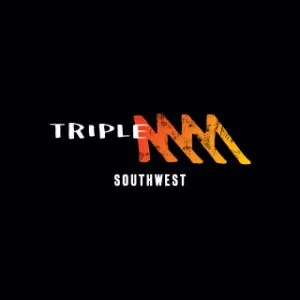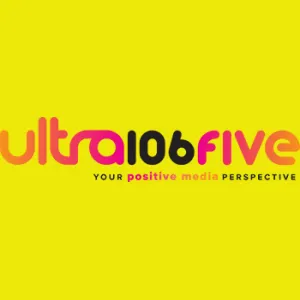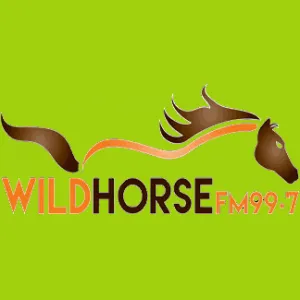Radio ABC Western Queensland

0
Condividere
Codice di incorporamento
0
0
[
Your local daily weather, headlines, sport and stories.
]The ABC's first presence in Western Queensland was in 1947 when a 200 watt transmitter was installed in the yard of the Longreach Post Office. Broadcasting started on March 19th. Initially, it operated under the 4QL callsign on 690 kiloHerz (kHz) but that was changed to the current 540 kHz in September, 1948. That was a relay service of national programmes but a studio was built in the Shire Hall in 1952 and a daily Rural programme began. The primary purpose of Rural in those days was to be an extension arm for the Department of Primary Industr... Vedi altro
+610746584011
Duck St, 4730 Longreach, Australia
https://www.abc.net.au/westqld/
ultimo aggiornamento
[2023-02-09 06:40:47]
Visualizzazioni:
752023-12-28 08:24:49
K
orellaThank you dear radio
Rispondere
Rapporto
Stazioni radio consigliate:
The ABC's first presence in Western Queensland was in 1947 when a 200 watt transmitter was installed in the yard of the Longreach Post Office. Broadcasting started on March 19th. Initially, it operated under the 4QL callsign on 690 kiloHerz (kHz) but that was changed to the current 540 kHz in September, 1948.
That was a relay service of national programmes but a studio was built in the Shire Hall in 1952 and a daily Rural programme began. The primary purpose of Rural in those days was to be an extension arm for the Department of Primary Industries. It took some years for the independent Rural reporting of today to be established.
A journalist was soon appointed to provide a local News service and this went to air at 7 to 7 each evening, ahead of the National 7pm News. A network of 'stringers' to be the eyes & ears in each town was developed.
During the late 1960's, the Kynuna 'stringer', Richard Magoffin who became Australia's leading authority on Waltzing Matilda, wrote a poem which he called 'The Regional News'. Long-time locals still talk about this tribute to what soon became a vital service.
In December 1954, transmission moved out of town, across the Thomson River to Cramsie where a 10 kilowatt transmitter was installed. Two years later a two kilowatt 'standby' transmitter was also installed. Somewhat optimistically, the signal from this transmitter was expected to cover all of Western Queensland and even Port Moresby. Under the right weather conditions that may have been possible, but those conditions didn't exist often and another 10 kilowatt transmitter (4CH) on 603 kHz was installed near Charleville.
During the late 1980's, the North East Regional Radio (NERR) satellite service was established. This allowed the 'black spots' to be filled in, supplementing the Longreach and Charleville AM transmitters. Programme is fed via satellite to receivers in remote places like Birdsville or Burketown and then re-transmitted via a small FM transmitter to that town. A number of communities have come on board via a 'self-help' programme where the local council funds its own local transmitter to improve the community's access to ABC programming.
Initially, the NERR programme emanated from Townsville, but, after considerable lobbying by listeners in the early 1990's, ABC Western Queensland became the source of NERR Breakfast and Morning programmes.
But, we're getting ahead of our story.
The Rural Reporter presented a basic local Breakfast programme up to the time ABC Local Radio underwent a major transformation during the mid-1980's.
It wasn't always easy. One morning the reporter came out of the studio to find there'd been a fire and a large part of the Shire Hall (remember, the studio was there?) had burned down while he'd been on air.
We're not sure exactly when the ABC decided to construct its own building. Photos of the area taken in late 1962/early 1963 show the current Duck Street site, behind the ANZ Bank as a vacant block.
The brick building which now occupies the Duck Street site was originally half the size it is now. There was a small studio with an adjacent control room, offices for the Rural Reporter (who was also the Officer-in-Charge), Regional News Editor and the Regional Assistant.
Gradually, the local programming sneaked up with a couple of casual announcers finding work when the Rural Reporter was on the road chasing stories.
During the next few years, the staff numbers remained the same but, at some stage, responsibility for administration shifted to the Journalist-in-Charge.
By 1987 the ABC had decided to greatly expand its commitment to Local Radio.
The ABC building in Longreach was doubled in size with a new wing containing a modern studio, production booth and equipment room being added to the back of the original construction. The then Director of Radio, Malcolm Long, did the official opening on November 12th, 1987.
The changes also meant new staff appointments and a restructure of management.
A Regional Programme Manager (RPM) was now in charge. Tim Butler, a former dairy farmer who'd been a Rural Reporter in South Australia got the job. He also became the Breakfast presenter. Dallas Douglas, who'd been a casual announcer for a couple of years, took on the Morning programme until 11 each day. The Regional Assistant acquired a new label. She became a BPO which stood for Broadcast Production Officer but the administrative duties continued.
Computers first appeared in the office but not for everybody. There were two initially, one in the front office and one in the RPM's office. The BPO & RPM discovered the dubious joys of e-mail but the other staff continued to use typewriters. It was exciting when they were upgraded to electric versions.
The Rural Report remained an integral part of the Breakfast programme but the 7-to-7 News was finished and replaced by local bulletins at 6.30 am, 7.30 am and 12.30 pm. An 8.30 am bulletin was soon added.
With the new studio in operation, the original building was remodelled as office space. The old studio became the Morning presenter's office while the Control Room became the Rural Reporter's office. Initially, the RPM had the former Rural office but, after a year, he and the journalist swapped spaces. A small recording booth, usually called 'The Broom Closet' was created at the end of the corridor between the front office and the RPM's room.
Arrangements were also made with the ABC Shop in Brisbane to have a small supply of stock sent out regularly and a cupboard in the corridor became the local ABC shop. That arrangement came to an end in 1997 when providing the service became too onerous for the local staff.
On-air identification was '4QL/4CH ABC Radio Western Queensland' but over the next few years it became 'ABC Radio Western Queensland' and then 'ABC Western Queensland' as it is today - but many long-term residents still call us '4QL'.
In April 1988, H.M. Queen Elizabeth II visited Longreach to officially open the Australian Stockman's Hall of Fame and Outback Heritage Centre. It was a busy time for ABC staff. One hundred and 30 aircraft taking part in the Bicentennial Air Race around Queensland arrived the afternoon before for an overnight stop. They were sent on their way first thing in the morning so people flying in for the Hall opening could be landed and settled before the Queen and Duke of Edinburgh arrived after lunch.
The new ABC facilities were overrun with people and satellite equipment which was brought in especially for the big occasion. It proved to be a good test for the recently-installed facilities which passed with flying colours.
In July 1988, the two 4QL transmitters at Cramsie were replaced by a new solid state 10 kw unit which had built-in redundancy with eight modular units so if one fails, the others should carry the load.
Nowadays, everybody has a personal computer and most of our audio is also on computer. Only the old-timers know how to use tape and very little music is played from vinyl records. Some broadcasters rarely use CD's because so much music is now stored on the computer server.
ABC Western Queensland has been a training ground for many people who've gone on to make names for themselves in other parts of the organisation over the years. Among them have been Rural Reporters David Howard, Stuart Bray, Jane Singleton, Lloyd Beasley, Alexandra Kirk, Mike McClusky, Ray Chan, Alexandra de Blas, Merian Ellis, Meg Strang, Bruce Reynolds, Jane Paterson, Julia McKinnon, Bruce Honeywill, Kirstie Baird, Alison Buchanan, Brooke Carrigan, Arlie Douglas, Vicki Wilson and Zane Bojack.
Journalists have included Geoffrey Luck, Albert Asbury who is probably best-remembered for the legend of the Giant Chook of Jundah, John O'Connor, Ken Orr, Judith Langridge, Rose Trapnell, Margaret El Shami, Judith Maisey, Patrick Condren, Jason Rawlins, Bruce Atkinson, Michael Baddorek, Troy Davies, John Taylor, Shane McLeod, Rachel Mealy, Kerrie Ritche, Jodie Collett/Gunders, Daniel Barty, Chrissy Arthur (current) and Ben Millington. Kirstie Baird/Harriman also had a stint as Journalist.
Tom Harwood (current RPM) spent a short time as a Journalist and then came back as the Morning Presenter before becoming the RPM in 2000.
Chrissy Hinde/Arthur first came to the station as RPM in 1998, then moved on to Tamworth and Gladstone before coming back as Journalist.
Jane Cudmore, Penny Johnstone/Brittain, Martin Powley, Anne O'Keefe, Amelia Williams and Linda McPherson have all been Regional Assistants/Broadcast Production Officers.
Broadcasters have included Dallas Douglas, Adrienne McDarra, John Palmer, Des Deighton, Simon Young, John Nolan, Cam Young, Justine Frazier, Phil Black, Jemma Schweikert, Peter Gunders, Renee Krosch, Ross Hall, Danny Kennedy (current Breakfast Presenter), Julia Harris (who moved on to be Online Producer), Sophie MacKinnon, Pat Hession, Peter Le Page, Leonie Lyons (current Mornings Presenter) and Penny Timms (current Saturday Presenter).
John Dolgner has been the Racing/Sports commentator for many years with (now retired) Bishop Ron Stone joining the team initially to give tongue-in-cheek religiously-inspired racing tips but developing into a general racing tipster and AFL expert.
During the past decade Online has become an increasingly important part of the ABC's connection with our audience. At first it was an entertaining sideline for any broadcaster with some spare time and a little knowledge of HTML. Peter Gunders was that person for Western Queensland. Then the ABC decided there was a need for a dedicated Online Producer. Kate Humphris, Luise Hoffman, Emma Rodgers, Sophie MacKinnon and Julia Harris (current) have all made their contributions to the ABC Western Queensland webpage.
RPM's have been Tim Butler, Ian Tinney, Chrissy Hinde/Arthur and Tom Harwood while Ray Rigbye was acting RPM for a couple of months.
Until 2003, the RPM was also the Breakfast presenter but then the ABC in Queensland appointed full-time Breakfast personalities and the RPM became the Producer for both Breakfast and Morning programmes, on top of their administrative duties.
That was a relay service of national programmes but a studio was built in the Shire Hall in 1952 and a daily Rural programme began. The primary purpose of Rural in those days was to be an extension arm for the Department of Primary Industries. It took some years for the independent Rural reporting of today to be established.
A journalist was soon appointed to provide a local News service and this went to air at 7 to 7 each evening, ahead of the National 7pm News. A network of 'stringers' to be the eyes & ears in each town was developed.
During the late 1960's, the Kynuna 'stringer', Richard Magoffin who became Australia's leading authority on Waltzing Matilda, wrote a poem which he called 'The Regional News'. Long-time locals still talk about this tribute to what soon became a vital service.
In December 1954, transmission moved out of town, across the Thomson River to Cramsie where a 10 kilowatt transmitter was installed. Two years later a two kilowatt 'standby' transmitter was also installed. Somewhat optimistically, the signal from this transmitter was expected to cover all of Western Queensland and even Port Moresby. Under the right weather conditions that may have been possible, but those conditions didn't exist often and another 10 kilowatt transmitter (4CH) on 603 kHz was installed near Charleville.
During the late 1980's, the North East Regional Radio (NERR) satellite service was established. This allowed the 'black spots' to be filled in, supplementing the Longreach and Charleville AM transmitters. Programme is fed via satellite to receivers in remote places like Birdsville or Burketown and then re-transmitted via a small FM transmitter to that town. A number of communities have come on board via a 'self-help' programme where the local council funds its own local transmitter to improve the community's access to ABC programming.
Initially, the NERR programme emanated from Townsville, but, after considerable lobbying by listeners in the early 1990's, ABC Western Queensland became the source of NERR Breakfast and Morning programmes.
But, we're getting ahead of our story.
The Rural Reporter presented a basic local Breakfast programme up to the time ABC Local Radio underwent a major transformation during the mid-1980's.
It wasn't always easy. One morning the reporter came out of the studio to find there'd been a fire and a large part of the Shire Hall (remember, the studio was there?) had burned down while he'd been on air.
We're not sure exactly when the ABC decided to construct its own building. Photos of the area taken in late 1962/early 1963 show the current Duck Street site, behind the ANZ Bank as a vacant block.
The brick building which now occupies the Duck Street site was originally half the size it is now. There was a small studio with an adjacent control room, offices for the Rural Reporter (who was also the Officer-in-Charge), Regional News Editor and the Regional Assistant.
Gradually, the local programming sneaked up with a couple of casual announcers finding work when the Rural Reporter was on the road chasing stories.
During the next few years, the staff numbers remained the same but, at some stage, responsibility for administration shifted to the Journalist-in-Charge.
By 1987 the ABC had decided to greatly expand its commitment to Local Radio.
The ABC building in Longreach was doubled in size with a new wing containing a modern studio, production booth and equipment room being added to the back of the original construction. The then Director of Radio, Malcolm Long, did the official opening on November 12th, 1987.
The changes also meant new staff appointments and a restructure of management.
A Regional Programme Manager (RPM) was now in charge. Tim Butler, a former dairy farmer who'd been a Rural Reporter in South Australia got the job. He also became the Breakfast presenter. Dallas Douglas, who'd been a casual announcer for a couple of years, took on the Morning programme until 11 each day. The Regional Assistant acquired a new label. She became a BPO which stood for Broadcast Production Officer but the administrative duties continued.
Computers first appeared in the office but not for everybody. There were two initially, one in the front office and one in the RPM's office. The BPO & RPM discovered the dubious joys of e-mail but the other staff continued to use typewriters. It was exciting when they were upgraded to electric versions.
The Rural Report remained an integral part of the Breakfast programme but the 7-to-7 News was finished and replaced by local bulletins at 6.30 am, 7.30 am and 12.30 pm. An 8.30 am bulletin was soon added.
With the new studio in operation, the original building was remodelled as office space. The old studio became the Morning presenter's office while the Control Room became the Rural Reporter's office. Initially, the RPM had the former Rural office but, after a year, he and the journalist swapped spaces. A small recording booth, usually called 'The Broom Closet' was created at the end of the corridor between the front office and the RPM's room.
Arrangements were also made with the ABC Shop in Brisbane to have a small supply of stock sent out regularly and a cupboard in the corridor became the local ABC shop. That arrangement came to an end in 1997 when providing the service became too onerous for the local staff.
On-air identification was '4QL/4CH ABC Radio Western Queensland' but over the next few years it became 'ABC Radio Western Queensland' and then 'ABC Western Queensland' as it is today - but many long-term residents still call us '4QL'.
In April 1988, H.M. Queen Elizabeth II visited Longreach to officially open the Australian Stockman's Hall of Fame and Outback Heritage Centre. It was a busy time for ABC staff. One hundred and 30 aircraft taking part in the Bicentennial Air Race around Queensland arrived the afternoon before for an overnight stop. They were sent on their way first thing in the morning so people flying in for the Hall opening could be landed and settled before the Queen and Duke of Edinburgh arrived after lunch.
The new ABC facilities were overrun with people and satellite equipment which was brought in especially for the big occasion. It proved to be a good test for the recently-installed facilities which passed with flying colours.
In July 1988, the two 4QL transmitters at Cramsie were replaced by a new solid state 10 kw unit which had built-in redundancy with eight modular units so if one fails, the others should carry the load.
Nowadays, everybody has a personal computer and most of our audio is also on computer. Only the old-timers know how to use tape and very little music is played from vinyl records. Some broadcasters rarely use CD's because so much music is now stored on the computer server.
ABC Western Queensland has been a training ground for many people who've gone on to make names for themselves in other parts of the organisation over the years. Among them have been Rural Reporters David Howard, Stuart Bray, Jane Singleton, Lloyd Beasley, Alexandra Kirk, Mike McClusky, Ray Chan, Alexandra de Blas, Merian Ellis, Meg Strang, Bruce Reynolds, Jane Paterson, Julia McKinnon, Bruce Honeywill, Kirstie Baird, Alison Buchanan, Brooke Carrigan, Arlie Douglas, Vicki Wilson and Zane Bojack.
Journalists have included Geoffrey Luck, Albert Asbury who is probably best-remembered for the legend of the Giant Chook of Jundah, John O'Connor, Ken Orr, Judith Langridge, Rose Trapnell, Margaret El Shami, Judith Maisey, Patrick Condren, Jason Rawlins, Bruce Atkinson, Michael Baddorek, Troy Davies, John Taylor, Shane McLeod, Rachel Mealy, Kerrie Ritche, Jodie Collett/Gunders, Daniel Barty, Chrissy Arthur (current) and Ben Millington. Kirstie Baird/Harriman also had a stint as Journalist.
Tom Harwood (current RPM) spent a short time as a Journalist and then came back as the Morning Presenter before becoming the RPM in 2000.
Chrissy Hinde/Arthur first came to the station as RPM in 1998, then moved on to Tamworth and Gladstone before coming back as Journalist.
Jane Cudmore, Penny Johnstone/Brittain, Martin Powley, Anne O'Keefe, Amelia Williams and Linda McPherson have all been Regional Assistants/Broadcast Production Officers.
Broadcasters have included Dallas Douglas, Adrienne McDarra, John Palmer, Des Deighton, Simon Young, John Nolan, Cam Young, Justine Frazier, Phil Black, Jemma Schweikert, Peter Gunders, Renee Krosch, Ross Hall, Danny Kennedy (current Breakfast Presenter), Julia Harris (who moved on to be Online Producer), Sophie MacKinnon, Pat Hession, Peter Le Page, Leonie Lyons (current Mornings Presenter) and Penny Timms (current Saturday Presenter).
John Dolgner has been the Racing/Sports commentator for many years with (now retired) Bishop Ron Stone joining the team initially to give tongue-in-cheek religiously-inspired racing tips but developing into a general racing tipster and AFL expert.
During the past decade Online has become an increasingly important part of the ABC's connection with our audience. At first it was an entertaining sideline for any broadcaster with some spare time and a little knowledge of HTML. Peter Gunders was that person for Western Queensland. Then the ABC decided there was a need for a dedicated Online Producer. Kate Humphris, Luise Hoffman, Emma Rodgers, Sophie MacKinnon and Julia Harris (current) have all made their contributions to the ABC Western Queensland webpage.
RPM's have been Tim Butler, Ian Tinney, Chrissy Hinde/Arthur and Tom Harwood while Ray Rigbye was acting RPM for a couple of months.
Until 2003, the RPM was also the Breakfast presenter but then the ABC in Queensland appointed full-time Breakfast personalities and the RPM became the Producer for both Breakfast and Morning programmes, on top of their administrative duties.
© LogFM.com, 2009-2024 (2024-08-12,07:52:53)





